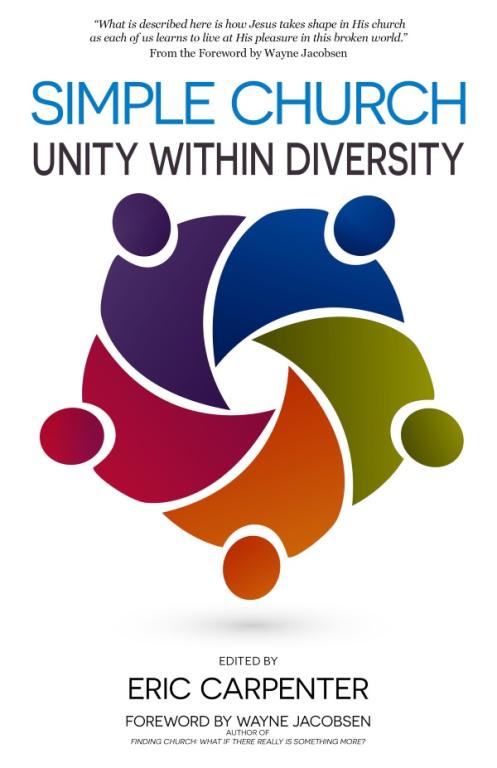I’ve been writing publicly since 2012 via blogs and a few contributions to books. During this time, I’ve been examining and re-evaluating my views on just about everything. (And the process is still ongoing—I don’t plan to settle into fixed and unchangeable beliefs any time soon.)

Part of the fun with having my deconstruction be so public is that I have a record of where I’ve been and how far I’ve come. That’s why I still haven’t taken down my old blog, BeingFilled.com, even though I now disagree with a substantial portion of what I’ve written there.
I thought it would be interesting to revisit a specific published work of mine, examine it anew, and see where I now diverge from my former self. I’m going to treat this more or less like I would a review of someone else’s writing. After all, the me of four years ago was a very different person from the me of today.
Summary
In 2013, Jeremy Myers invited me to contribute a chapter to a book he and Eric Carpenter were compiling, published in 2014 as Simple Church: Unity Within Diversity. The book includes additional contributions from Keith Giles, Kathy Escobar, and many other notable and diverse voices. While I disagreed with some of them then and with others now, it’s a fascinating read that, on the whole, I’d still recommend today.
My chapter in the book is titled “A Church That Holds Theological Convictions with Humility.” I asked three questions: “Is it ever right to separate over theology? If so, when? How can we hold to theological convictions humbly without causing division?”
To answer these questions, I began by emphasizing the importance of unity. I then examined the biblical instructions surrounding “sound doctrine” and “heresy.” “Sound doctrine,” I explained, means “healthy teaching” and is “primarily used to prescribe actions” rather than accurate theology. And “heresy” is creating division—it’s not a matter of what one believes but of how one holds their beliefs.
Next, I considered which beliefs the New Testament specifically describes as “the gospel” and thus worth separating over. And I came up with a list of five:
- Jesus is the Messiah, the Son of God….
- Jesus came to earth in the flesh….
- Jesus is a descendant of David….
- Jesus died for our sins, was buried, and was raised on the third day….
- Jesus is Lord….
These five simple beliefs then became my theological essentials. I labelled those who did not hold these beliefs as “not truly believers.” And thus, I reasoned, no unity with true believers was compromised. I then concluded with some suggestions for maintaining humility while encountering other nonessential beliefs that differ from one’s own.
[I also adapted, with permission, a portion of that chapter for a post on my old blog, and you can still read it there now.]
Evaluation
The most fundamental change I’ve undergone since writing that chapter has been my approach to understanding the Bible. At the time of writing, I was still clinging to my presuppositions of biblical inerrancy and sola scriptura. Back then, everything I believed had to be backed up with scriptural support. Biblical exegesis was my primary source for determining truth.
Given that perspective, I would stand by most of what I wrote as probably being the best way to read those texts. My goal was to show how far we often stray from the biblical call for unity, and to demonstrate how needlessly divisive most of our arguments tend to be.
I also still agree with how I understood the terms “sound doctrine” and “heresy” to be used in the New Testament, as opposed to how they later came to be understood under Christendom.
And I still very much agree with the advice I gave “for maintaining humility while discussing theology.” I’ve continued to grow and change in my beliefs to this day by following these six suggestions:
- Realize that you are wrong. All of us are—no exceptions. You may not be wrong about everything, but you certainly aren’t right about everything either. …
- Learn how to learn from others. I’ve found that I often gain the most from those with whom I most strongly disagree. …
- Make every effort to understand differing viewpoints rather than trying to disprove them. …
- Seek the truth together. Ignore the desire to prove your theology. …
- Remember that you are part of a family. …
- Keep your eyes on Jesus. …
However, by following the above advice, and given the fundamental shift in how I now understand the Bible, I’ve come to a few major disagreements with what I then wrote.
Criticism
I described five belief statements that form the core of New Testament teaching about Jesus, and I’d still see those as an accurate representation of what the Apostles taught. However, in labelling them “the gospel,” I overlooked something far more important—the life and teachings of Jesus himself, which actually constitutes the gospel as a whole. While I still affirm those belief statements about Jesus, I’m now much more concerned with actually living the way Jesus taught and modeled.
Most crucially, I’m no longer at all interested in writing people off as “not truly believers,” simply because they fail to affirm some point of theology. Being a Christian is about orienting one’s life toward following Christ. It’s about how we live, not what we believe. To an extent, I do still think that such theological considerations are important, but I don’t at all believe that the affirmation or denial thereof makes or breaks one’s status as a “true believer.”
As for the Apostles’ insistence on those beliefs—and their anathematizing those who disagreed—I think it stemmed in part from a legitimate desire to maintain unity. But unfortunately, they attempted to achieve that unity by the power-over methods of seizing control that Jesus warned against.
Right beliefs—whatever they may be—need not be coerced or managed by force. If we are living rightly, following the example that Jesus gave us, then our beliefs will work themselves out well enough.
As for maintaining unity, I still believe that unity (though not uniformity) is very important. However, I would no longer refer to unity as a first-tier doctrine, as I did in my chapter. Rather, love is the one and only first-tier doctrine. Everything else is subservient to love.
Inasmuch as we all truly live in love, we will have true unity, regardless of any theological disagreements. However, to seek unity as our goal without first having love is ultimately to sacrifice love in pursuit of a false unity. We do not need to seek unity. We need only seek love. If we achieve love, unity will follow of its own accord.












